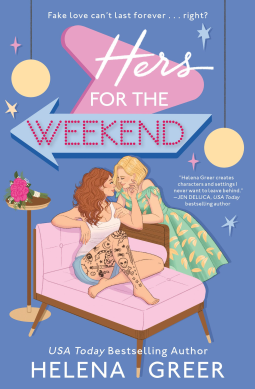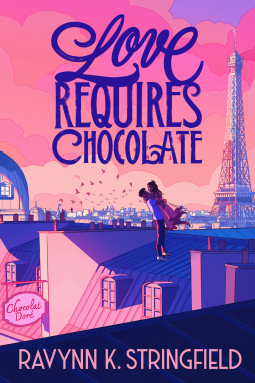
This is a romance. I would say on the romance.io steam rating scale, this is 🔥🔥: behind closed doors.
Helena Greer’s romances set at Carrigan’s Christmasland, a magical lodge/Christmas tree farm in the Adirondacks owned by a Jewish family, come to a close with Hers for the Weekend. Carrigan’s is a place as real to me as many of the actual magical-feeling places I’ve been in my life and the Carrigan’s Crew are all immensely lovable people with supremely relatable flaws.
Here’s the publisher’s description:
No-nonsense Tara Sloane Chadwick is practically perfect. An impeccably mannered Southern belle, she’s the youngest to make partner at her law firm and still friends with all her exes. However, when the woman behind her most humiliating breakup invites Tara to her wedding, Tara panics at the thought of showing up alone and impulsively declares she’s bringing her very serious girlfriend.
One issue: Tara is seriously single.
Waitress and wild child Holly Siobhan Delaney may be lusting over Tara—but Tara only dates women she can marry, and Holly’s sworn off relationships. So when Tara needs a fake girlfriend, Holly’s eager to propose a no-strings, temporary fling. Only sharing secrets and steamy kisses show Holly the caring woman beneath Tara’s picture-perfect exterior, tempting Holly to break her own rules. Can these two opposites trust their feelings enough to try for forever—or will their relationship go down in flames?
What I loved
Helena Greer’s whole deal is taking beloved Hallmark tropes and queering them. In this one, the frosty blonde fiancée gets the girl. And I adore this frosty blonde fiancée. Tara Sloane Chadwick is a Southern belle with a wild past using her degree from Duke law (where my Dad probably would have been working when Tara was in law school, if she were real!) to subvert the inequitable justice system from whose bias she benefited as a young person.
Tara is less ice queen than snow queen: she just needs someone to help her melt. And a propos of a snow queen (of which I am one, which is to say, I melt easily), her favorite Disney movie is Frozen II. This comes up in the book A Lot. If you don’t know the movie, you’ll be fine, but if it spoke to your heart (it did to me, even more than Frozen), you are going to appreciate a lot of bits of this book even more than you would otherwise. So I love this, I love Tara feeling like she’s Elsa.
I love that Tara struggles to believe she is loved by her friends, especially her platonic twin-flame, Cole. But she is. And this is a romance novel so part of the happy ending is her accepting that love, eventually. But the journey, whew. It left me weeping.
Holly doesn’t speak to my heart as directly as Tara does. But she is still a great character, who has sanitized her punk rock self into a more socially-acceptable rockabilly quirky girl. Like Tara, she is haunted by a mistake she made in her youth and doesn’t trust herself because of it.
Both of these women mask themselves from the world and both of them, over the course of the book, will learn that it is not just okay, but actually great, for them to be themselves.
There are lots of fun Christmas wedding hijinks here, and if you’ve read the first two Carrigan’s books, all the Carrigan’s interactions will feel extra rich and make everything more fun. (And if you haven’t, you should. They’re great.) All of the secondary characters feel full and whole.
What I wanted more of
Listen, I have no notes, I’m just sad not to have new Carrigan’s stories.
What I need to warn you about
There are some really awful parents in here. Helena Greer writes great warnings at the start of her books, so be sure to check those out.
Who should read this
Anyone who likes to cry during their rom-coms. Anyone who wants the ice queen blonde fiancée to get a happy ending after her quirky partner leaves her. Anyone who wants to spend time in an idyllic mountain area with a festive destination and a delightfully queer-friendly and racially-diverse small town. People who like Courtney Kae’s books.
Book: Hers for the Weekend
Author: Helena Greer
Publisher: Forever
Publication Date: August 27, 2024.
Pages: 368
Age Range: Adult
Source of Book: ARC via NetGalley







